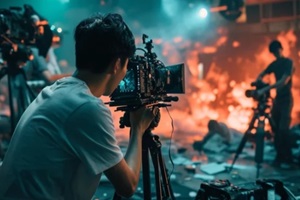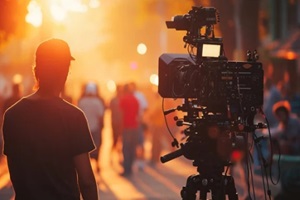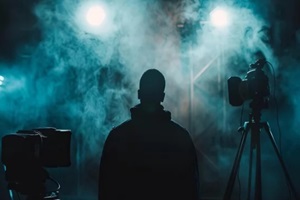 Filmmakers invest significant financial and creative energies into their works, and for many, their focus is so attuned to the progress of the production that they neglect to consider how to protect it from unexpected mishaps.
Filmmakers invest significant financial and creative energies into their works, and for many, their focus is so attuned to the progress of the production that they neglect to consider how to protect it from unexpected mishaps.
Insurance for feature film production is mandatory in many cases, but basic coverage alone will not secure your film from all the perils that may delay production or even destroy the project in its entirety.
Film producers and directors, particularly those who budget and finance their projects, should understand the necessity of insurance in film production. Proper coverage can protect a studio’s financial and creative investments to ensure their project reaches completion while mitigating the risks.
Here are the most essential insurance policies for filmmakers.
General Liability Insurance
Few projects ever get off the ground without general liability insurance. Most venues, locations, and permitting agencies will not allow studios to shoot without at least some general liability insurance. This type of policy aims to protect against third-party injuries and property damage on set.
Suppose that a film is to be shot at an old theater. The theater retains a few staff members to oversee the visiting production team while filming inside the space.
However, the production team fails to secure their camera cables properly, and a member of the theater staff trips and breaks their arm. General liability insurance would pay for the employee’s medical bills because the production studio was responsible for injury to a third party.
Equipment Insurance
Even when handled carefully, film equipment can break or need repair. Without the financial support to handle unexpected challenges, production can halt, and important deadlines may be missed.
Film equipment insurance can cover cameras, lighting, sound equipment, and more should they need full replacement or repair. Some policies only cover owned gear, but others can be customized to protect rented equipment.
Just remember: intentional damage or improper handling are not typically covered as reasons for repair. Additionally, drones, aerial photography, and other types of special equipment may require their own policy or a rider.
Errors and Omissions Insurance
Films may contain copyrighted material, such as brand logos, throughout their runtime—and this is not necessarily a problem as long as the proper rights are secured before publication.
 However, suppose a studio makes a mistake and accidentally infringes the copyright or falls victim to other types of intellectual property disputes, known as errors & omissions.
However, suppose a studio makes a mistake and accidentally infringes the copyright or falls victim to other types of intellectual property disputes, known as errors & omissions.
In that case, insurance can cover the legal fees and penalties. E&O insurance is often a requirement to secure distribution deals for the film’s publication.
Workers’ Compensation Insurance
A film set can be a dangerous place, with crewmembers potentially subject to injury from events such as falling from ladders or dropping heavy machinery on themselves.
Suppose an employee is injured while filming. In that event, workers’ compensation insurance can pay for their medical costs, any rehabilitative care, and their paycheck while they are off work recovering.
Depending on the policy details, cast and talent may not be covered under workers’ compensation; always read the policy information thoroughly to determine if you need separate cast & crew insurance.
Completion Bond Insurance
A completion bond is akin to an insurance policy; it ensures a film project is completed on budget and on time. Completion bonds will pay for the extra time needed to finish a project.
A completion guarantor may even take over production to complete the film if halted due to a significant issue, such as the director’s death.
This assurance is essential for securing financing from investors who want confirmation that their financial contribution will not go toward a film that never reaches publication.
Automobile Liability Insurance
Many film production studios regularly use their company vehicles to complete shoots. Vehicles are essential in most projects, from transporting equipment to shuttling talent.
Automobile liability insurance offers coverage for vehicles used during production so that, should the studio’s vehicles be involved in an accident or cause damage to someone else’s property, the studio is not responsible for financial compensation to the affected party.
Partner With MFE Insurance For Insurance Made For Filmmakers
 Films are, by nature, composed of many moving parts—but before you get entrenched in all the details of lighting, sets, and cast, do not forget to consider which insurance policies will be most important for your project.
Films are, by nature, composed of many moving parts—but before you get entrenched in all the details of lighting, sets, and cast, do not forget to consider which insurance policies will be most important for your project.
The experts at MFE Insurance partner with film industry professionals to create tailored insurance solutions that address the unique needs of each film project.
Contact MFE Insurance to protect your investment with expert advice and comprehensive coverage, whether you are shooting a small, hometown documentary or an international blockbuster.
